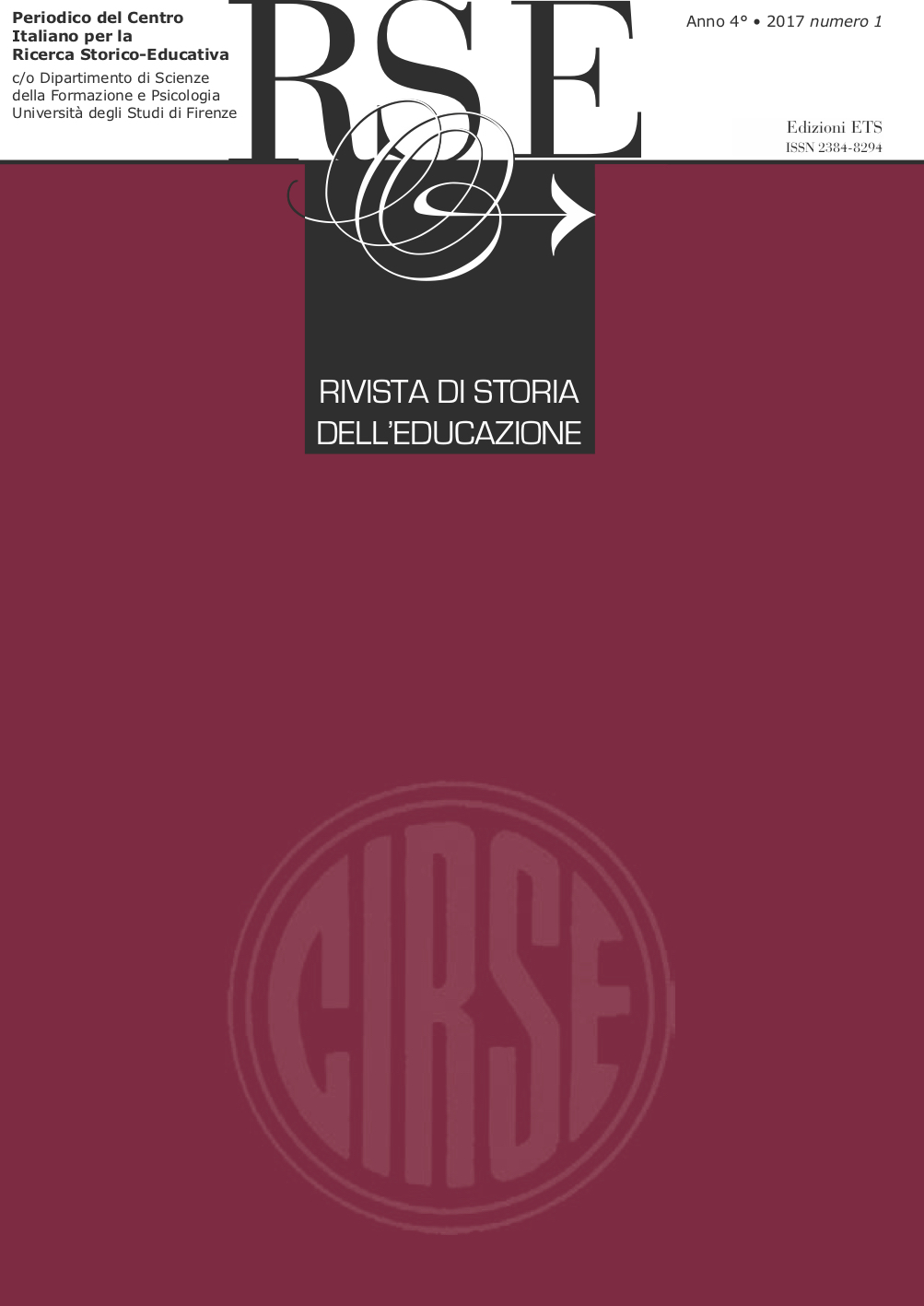The educational institution in the modernization of the local. Historical-Pedagogical Perspective
Published 2018-06-09
Keywords
- education, history of education; educational institution; modernization of the local
How to Cite
Abstract
In (formative) process, education involves heteronomy in ideation, alterity in concretization, subjectivation in appropriation. Ideally global, education happens in the subject and gains form and meaning in the place. At the historical level, the formal educational local can assume the configuration of institution, municipality, biography. The educational integrates and constitutes the local, the local evolved by virtue of the educational. Assuming different configurations, it was as a school institution that the educational institution became a transforming local. By transforming and evolving, the school transformed the local. The school institution is a pillar of Modernity and a means of modernization. Societies, religions and denominational confessions (lay or religious), local entities, the individuals themselves integrated the school into life destinations and daily life. In this text will be presented a historical-pedagogical framework on the constitution, specificity, evolution, globalization of the school-institution in the long course of Modernity. A meta-institution will be rehearsed, giving way to a dialectic instituted-institute-institution, of interaction and transformation in the school-local binomial. This approach will focus on the theoretical framework and will take as reference case studies from the history of educational institutions, particularly in Portugal and Brazil. These cases are approached in a historical-pedagogical perspective.

